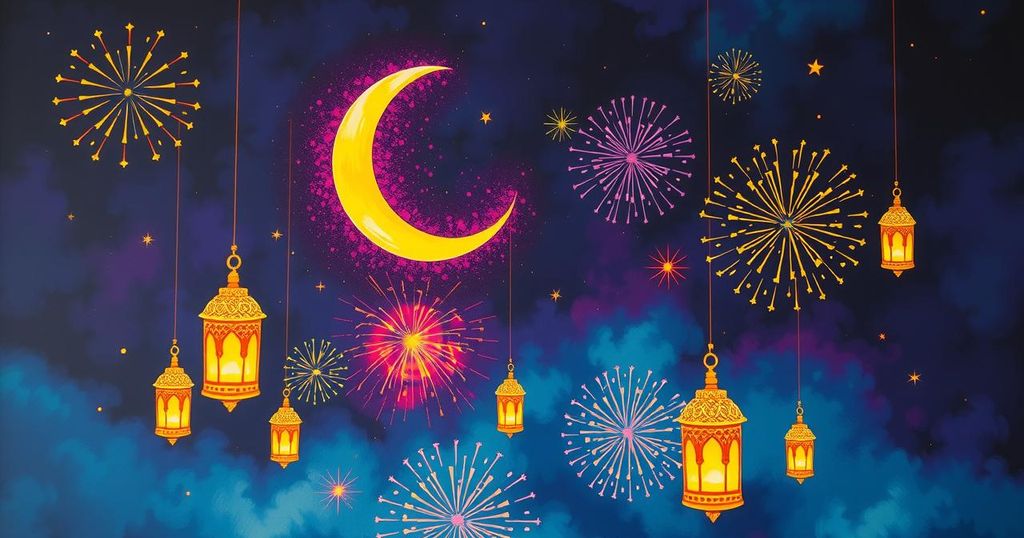Eid-ul-Fitr 2025: Anticipated Dates and Global Celebrations

Eid-ul-Fitr 2025 is set for either March 30 or 31, depending on the moon sighting. Significant countries will observe this tradition on the evening of March 29. Holidays are officially announced in multiple nations, allowing families to celebrate with joy and unity. The festival highlights the completion of Ramadan while fostering generosity and togetherness through shared traditions and charitable acts.
Eid-ul-Fitr 2025, a significant celebration for Muslims worldwide, is anticipated to occur on either March 30 or 31. The exact date will be dictated by the sighting of the crescent moon, which marks the conclusion of Ramadan. Eid al-Fitr serves not only as a religious observance but also as a global festival filled with unity and gratitude.
The Islamic calendar relies on lunar cycles, which means that moon sighting plays an essential role in determining the beginning of each month, including Shawwal, the month following Ramadan. Thus, moon sighting committees across regions, including Saudi Arabia, the UAE, and several Western nations, will convene on the evening of March 29, 2025, to observe the crescent moon after maghrib prayers.
If the crescent moon is sighted on the evening of March 29, then Eid will be celebrated on March 30; however, if the moon is not visible, Ramadan will conclude with a full 30-day cycle, resulting in Eid being celebrated on March 31.
In preparation for Eid, various governments have declared official holidays. Saudi Arabia will observe a four-day break from March 30 to April 2, potentially allowing private sector employees a six-day holiday. The UAE will have a three-day holiday period from Shawwal 1 to 3, with an additional day if Ramadan lasts the full month. Kuwait has flexible holiday options, offering three days off if Eid occurs on March 30 and extending it to nine days if Eid falls on March 31.
Eid al-Fitr embodies profound spiritual significance. It symbolizes the closure of a month dedicated to fasting, prayer, and self-discipline. Families traditionally come together for sumptuous feasts, wear their best outfits, and attend special mosque prayers. The act of giving Zakat al-Fitr ensures that everyone can enjoy the festivities, fostering a spirit of generosity and care.
As homes fill with warmth and companionship, friends and relatives share Eidi (gifts), enjoy diverse traditional foods, and reflect on the teachings of Ramadan. The culinary aspect of Eid, featuring dishes like sheer khurma and maamoul, enriches the celebratory experience, enhancing the communal joy.
As the moon ascends, ushering in Eid, the community is encouraged to spread joy, kindness, and love. Eid Mubarak!
Eid-ul-Fitr in 2025 is expected to be celebrated on either March 30 or 31, with the specific date contingent upon the crescent moon sighting. This festival, which marks the end of Ramadan, not only holds religious significance but also promotes unity and generosity among communities worldwide. Governments across various nations have established holidays to facilitate family gatherings and celebratory activities, thus enhancing the spirit of this momentous occasion.
Original Source: www.hindustantimes.com






